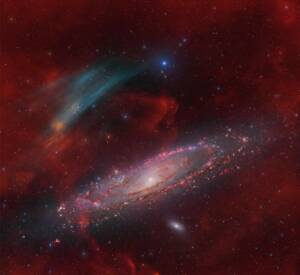
Discovery of the M31 [OIII] emission arc
Recently, a major discovery by an international team of amateur astronomers and scientists has become a huge online hit, and this new discovery is just located in one of the
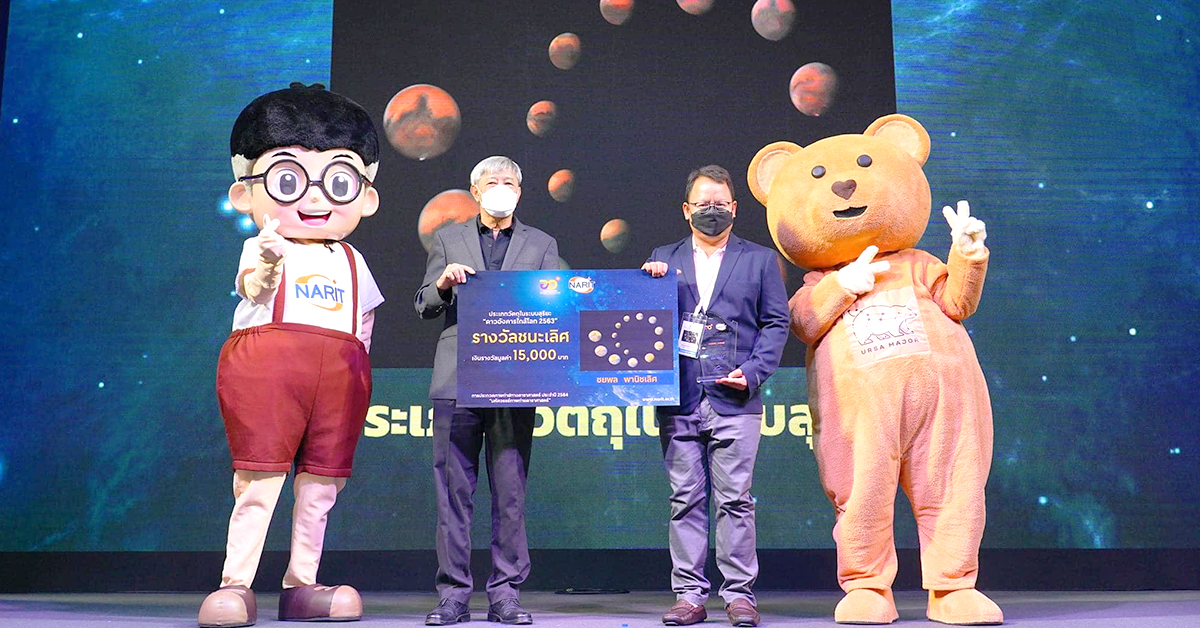
Hello, first I would like to thank ZWO for choosing my picture Venus to win ASIWEEK #04/2022. My name is Chayaphon Phanitloet, I live in Nakhon Ratchasima Province, Thailand. I am a primary school teacher.

Back to the past. The total solar eclipse in Thailand on October 24, 1995, was an event that made me very excited and impressed because this may be the only chance in a lifetime that can be seen in Thailand. We need to wait another 75 years for another total solar eclipse. In 1996, Comet Hyakutake visited Earth and then the Comet Hale-Bopp came too in 1997. These past significant events made me more interested in astronomy.
I didn’t have a camera to record the past astronomical events before. They only existed in my memory. So that’s why we should have a camera to be able to capture images of these astronomical events. I started astrophotography in 2014, the moon. Seeing the moon image taken by myself the first time was very excited.
The Equipment used is currently my 1,000mm GSO 10” telescope with EQ mount iOptron CEM70 and ASI462MC. Filter Antlia L, IR685, IR850, CH4 and U-Venus with Televue Power mate 5x.
It is difficult to photograph Venus. First of all, Venus is not very high above the horizon, so the weather is very important. Secondly, imaging Venus doesn’t need to use RGB filters like other planets do, because if taking a normal color, we will not be able to see the details of Venus. To see the structure of the clouds and see the beauty of Venus, RGB colors must be created by synthetic colors obtained by IR850 filter and the U-Venus. IR850 will make a red image, U-Venus will make a blue image. Then we can mix IR850 and U-Venus to get the green image.
In my opinion, the first is the weather which we can’t predict much. When doing planetary imaging, we need a lot of magnification, so any changes in the air will have a big impact. Secondly, to collimate the telescope as best as possible, as straight as possible, for best clarity, I will collimate the telescope before every photography. The temperature in Thailand is fickle, so the structure of the telescope often changes. As a result, I am always pursuing the best focal length. Thirdly, it is necessary to shoot as quickly as possible. Setting the right resolution can allow us to achieve a faster frame rate. And the last one is image processing, for the sake of sharpening the parts of the planet and keeping the planet’s colors correct, not deviating from reality.
I am able to capture images of astronomical events and share them with others. Finding what I want from the internet, which is the largest source of knowledge, makes me know how to find knowledge on my own to improve image quality.
I work as a teacher and I have brought this knowledge to teach the students in the schools. Let them learn knowledge and achieve interest in astronomy.
I like photographing the planets because it doesn’t take a long time. In the evening after work, I have time to take pictures of these planets, especially Venus, which usually appears in the morning. And there will be plenty of time for astrophotography and image processing during the weekends.
My family is involved in most of my activities, especially my children. My son constantly sits and watches me take pictures and ask questions. When doing astrophotography, I let my children learn a lot that I didn’t have the opportunity to learn. The other members of my family are always there to support and motivate me.


Seeing the result of image processing is the most exciting thing from my point of view. It’s like that I’m on a road full of obstacles and I am slowly processing through them to find the great result. I really love the process and the result.
I really like the ASI462MC, it’s a high speed camera. Especially when shooting in the high QE infrared spectrum, I would use the IR850 filter to photograph Venus. The frame rate was very impressive. And if I take Jupiter through the CH4 filter, it gives me more signal in a limited time.
The success I’ve achieved this year is capturing planets better than last year. In Thailand, there is an annual astronomical photo contest organized by the National Astronomical Research Institute of Thailand (Public Organization), and this year I was the 1st prize winner. Next year, I would like to increase the quality of my planetary imaging even more. I will take more nice images with cheap equipment that everyone can afford.
Photographing Venus must be featured in UV and IR wavelength. If there were a camera with high QE value in IR and UV wavelength it will be great. If it is a mono camera, that would be better.
I am very impressed with ZWO products, beautiful and nice packaged. ZWO has also developed the software to be compatible with its own products, and it is updated regularly. What I want ZWO to develop are the peripherals used in photography such as Focuser or Adapter to make ZWO’s ecosystem richer. I think it wouldn’t be a problem for ZWO to produce these by itself. These products should be in line with its current own products as well.

Recently, a major discovery by an international team of amateur astronomers and scientists has become a huge online hit, and this new discovery is just located in one of the
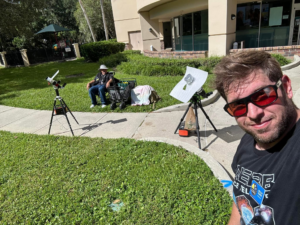
That 11-year-old boy staring at Horsehead Nebula photo would never have imagined… Decades later, he’d be capturing amazing deep-sky images from his Florida backyard! “ It was amazing to see
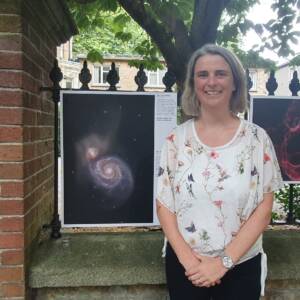
Hello,Sara Harvey,thanks for accepting our interview invitation. Congratulations on winning the ASIWEEK competition in week! Q1: At first, congratulation that your nice image won #ASIWEEK. Can you introduce yourself to
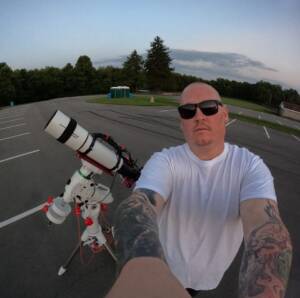
Astrophotography is more than just capturing images of the night sky—it’s a journey of discovery, patience, and creativity. For this passionate astrophotographer, what started as a chance encounter with a
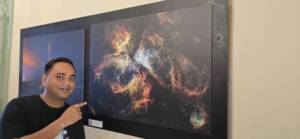
Taranjot Singh, an Indian origin Australian astrophotographer who is making waves on the international stage. Taranjot has been recognized as one of the Top 5 finalists in the prestigious Siena
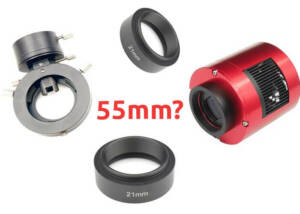
The back focal length is advised by telescope manufacturers. Since most telescopes have a 55mm back focal length, we are here to provide detailed instructions for all ASI cooled cameras.Please